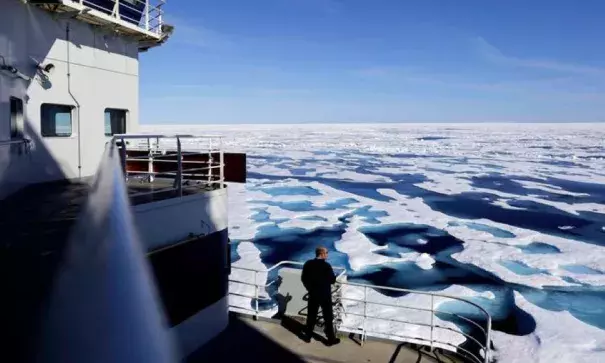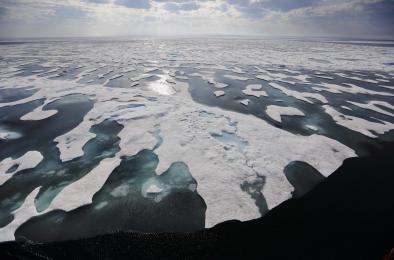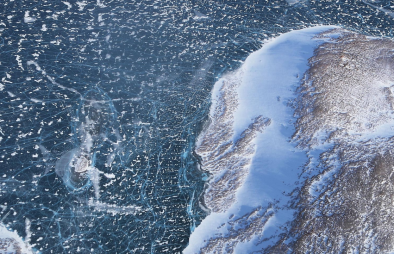Arctic journey shows the glaring effects of climate change

FRANK JORDANS, REPORTER, ASSOCIATED PRESS: What is new this year is that the Finnish ice break in Nordica, was able to go from Vancouver to Nuuk and arrived by July 29th, which is the earliest passage that’s ever been recorded.
SREENIVASAN: So, that means the ice is thinner and it’s happening earlier in the year. Meaning that it’s a warmer temperature?
JORDANS: Yes, the ice coverage fluctuates year by year. Sometimes it increases a little bit. Sometimes, it’s less. What that meant for our trip was that we were able to enter the Northwest Passage earlier and found remarkably little ice. And the ice that we did find was quite thin.
SREENIVASAN: What are the consequences if the ice is thinning earlier, and if this passage is opening?
JORDANS: Well, there’s been a lot of speculation in the last few years ago about whether or not the Northwest Passage might become a new shipping highway. Cargo ships, tourist ships, pleasure boats, those kinds of things. And if the Northwest Passage becomes completely ice-free or virtually ice-free sort of large parts of the summer, then that does become a distinct possibility.
SREENIVASAN: There were several researchers on board this vessel. What were they studying?
JORDANS: The impact of global warming on societies in the Arctic, some were taking records of the marine animals that we were encountering. And some were looking at the Northwest Passage from an economic point of view.
SREENIVASAN: I take it most of this is uninhabited area. For anyplace that you ran into any communities that were living off the ice, what’s the consequence to them if this passage keeps opening up sooner and sooner?
JORDANS: Well, the area is not entirely uninhabited, but it is certainly very sparsely inhabited. There are small communities along the way, and sometimes they’re hundreds of kilometers or miles from other communities. They actually depend on the ice for travel. Those are their highways for much of the year.
So, when the Northwest Passage is frozen over, they can travel from one community to another very quickly by sled for example. When the ice breaks up, then they can’t do that anymore. The whole situation changes for them. So, as the Northwest Passage changes, due to global warming, these communities will have to adapt.
Related Content




